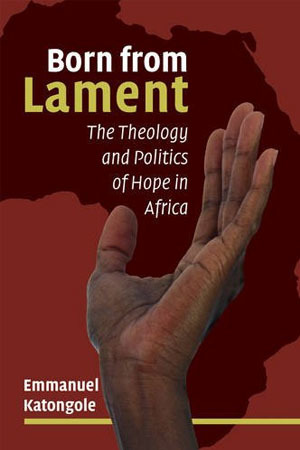Born from Lament: The Theology and Politics of Hope in Africa

Wm. B. Eerdmans Publishing Co., 2017
For Emmanuel Katongole, there is no more urgent theological task than to provide an account of hope for those enduring Africa’s endless cycles of violence, war, poverty, and displacement. In Born from Lament: The Theology and Politics of Hope in Africa, he investigates the theological notion of lament as a way to account for the resilience, agency, and innovation of Christian social activists for non-violent change in East Africa.
In Eastern Congo, Katongole gathered data on the historical, religious, and cultural expressions of lament while documenting the stories of courageous Christian social activists working to end violence. He found that, in the midst of suffering, hope takes the form of "arguing" and "wrestling" with God. Such lament is not merely a cry of pain—it is a way of mourning, protesting, and appealing to God. Katongole’s research highlights the inner connection between lament and hope and the theological, social, and political implications of this connection for African societies.
Emmanuel Katongole featured in the Eerdmans Author Interview Series »
Reviews
"What an extraordinary gift! Emmanuel Katongole helps us see how God and the everyday, lament and hope, Scripture and prayer, church and public life all hold together. Born from Lament is about Africa, yet it speaks to the world. This is a landmark work by one of the most remarkable and transformational theological leaders of our time."
— Mark R. Gornik, City Seminary of New York
"Katongole redefines the method for doing public theology in Africa and the world church by giving voice to those on the margins. He argues that hope in Africa should be presented not simply as a wish or pious claims but as a light that one can discover in Africa by following stories of faith, courage, and the practice of hopeful living among many African Christians."
— Stan Chu Ilo, DePaul University
"A rich ethnographic and theological analysis. . . . A refreshing political theology grounded in human practices rather than the sovereignty of the state and its rulers. This compelling invitation to rethink the theology of hope should be on everyone's reading list."
— Elias Kifon Bongmba, Rice University